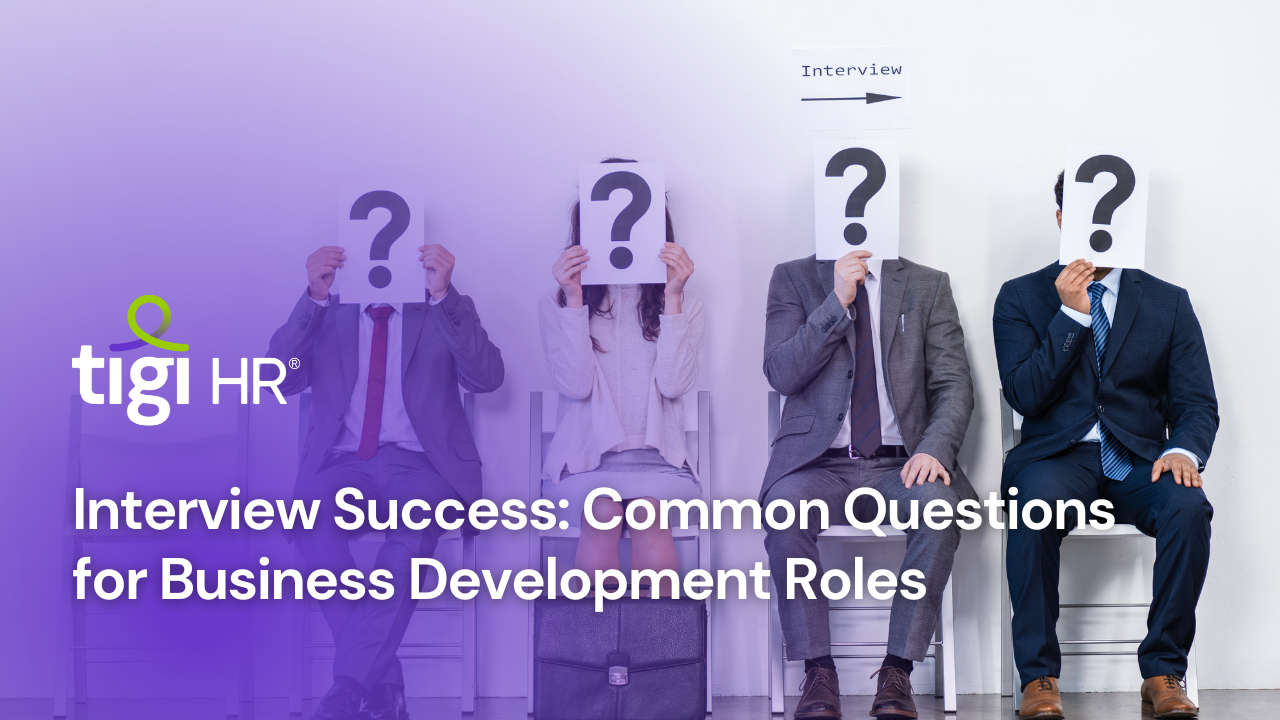Landing a business development role is a significant milestone in one’s career journey. These positions require a unique blend of skills, including strategic thinking, communication prowess, and a deep understanding of market dynamics. To excel in a business development interview, it’s crucial to prepare thoroughly for the questions that interviewers are likely to ask. In this article, we will explore the common interview questions for business development roles, providing insights, tips, and strategies to help you succeed in your next interview.
Section 1: The Importance of Business Development Interviews
1.1 Competitive Landscape
Business development roles are highly sought after, and competition can be fierce. According to the Bureau of Labor Statistics, the demand for business development professionals is expected to grow by 5% from 2020 to 2030.
1.2 Success Depends on Preparation
Preparation is the key to success in any interview. The more you familiarize yourself with common questions and formulate thoughtful responses, the more confident and impressive you’ll appear to potential employers.
Section 2: Common Interview Questions
2.1 Tell Me About Yourself
This is often the first question in interviews. Craft a concise and compelling response that highlights your relevant experience, skills, and career goals. According to the Harvard Business Review, interviewers typically form their opinion about a candidate within the first five minutes.
2.2 Why Are You Interested in Business Development?
Showcase your passion for business development by discussing how your skills and interests align with the role. Mention industry trends or personal experiences that sparked your interest.
2.3 What Do You Understand About Our Company?
Research the company thoroughly and demonstrate your knowledge by highlighting its mission, values, products, and recent achievements. This question reveals your level of preparation and commitment.
2.4 Describe a Successful Business Development Project You Led.
Use the STAR (Situation, Task, Action, Result) method to structure your response. Discuss a specific project, your role, the actions you took, and the positive outcomes achieved.
2.5 How Do You Identify and Prioritize Prospects?
Share your approach to prospecting, emphasizing research, segmentation, and a focus on potential value. Mention any tools or strategies you use to identify ideal prospects.
2.6 How Do You Overcome Rejection or Objections from Clients?
Describe your resilience and ability to handle rejection positively. Highlight techniques like objection handling, active listening, and empathetic communication.
2.7 What Strategies Do You Use to Build and Maintain Client Relationships?
Discuss relationship-building strategies, such as personalized communication, regular follow-ups, and delivering exceptional value. Emphasize your commitment to long-term partnerships.
2.8 How Do You Stay Informed About Industry Trends and Competitors?
Mention your sources of industry news, such as trade publications, conferences, and online communities. Explain how staying informed helps you adapt and make informed decisions.
2.9 Can You Give an Example of a Time When You Had to Pivot Your Business Strategy?
Share a specific instance where you had to adapt to changing market conditions or unexpected challenges. Highlight your strategic thinking and ability to make agile decisions.
2.10 What Metrics Do You Use to Measure Business Development Success?
Discuss key performance indicators (KPIs) relevant to business development, such as revenue growth, conversion rates, customer lifetime value, and market share.
Section 3: Tips for Interview Success
3.1 Prepare Thoroughly
Research the company, industry, and role extensively. Familiarize yourself with the company’s products, competitors, and recent news.
3.2 Practice Behavioral Interview Questions
Many questions will be behavioral, asking for specific examples from your past experiences. Practice using the STAR method to structure your responses.
3.3 Emphasize Soft Skills
In addition to technical skills, highlight soft skills like communication, negotiation, adaptability, and resilience, as they are crucial in business development roles.
3.4 Ask Thoughtful Questions
Prepare questions to ask the interviewer. This demonstrates your interest and engagement. Ask about the company’s growth plans, team dynamics, or future projects.
Conclusion on Common Questions for Business Development
Success in a business development interview requires thorough preparation, a deep understanding of the role, and the ability to articulate your experiences and skills effectively. By anticipating common questions and practising your responses, you can increase your confidence and impress potential employers.
As the demand for business development professionals continues to grow, mastering the art of interview success becomes paramount. Embrace each interview as an opportunity to showcase your expertise and passion for driving business growth, and you’ll be well on your way to securing that coveted business development role.
Also Check: Strategic workforce planning
Statistics and Insights:
- The Bureau of Labor Statistics predicts a 5% growth in demand for business development professionals from 2020 to 2030.
- According to the Harvard Business Review, interviewers typically form their opinion about a candidate within the first five minutes.
- Effective business development professionals are skilled in soft skills such as communication, negotiation, adaptability, and resilience, as highlighted by LinkedIn.
- Behavioral interview questions, like those using the STAR method, are common in business development interviews to assess past experiences and skills.
- According to Statista, the global business development software market is expected to reach $34.34 billion by 2027, indicating the growing importance of business development roles.





